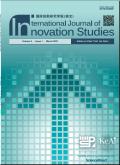通过创新实践和组织承诺的中介作用激发低碳行为的绿色人力资源
IF 5.3
Q2 MANAGEMENT
引用次数: 0
摘要
长期以来,可持续性问题一直是商业领域的一个重要概念,而成功的绿色人力资源管理(GHRM)则有可能帮助组织在环境可持续性方面取得更好的绩效。本文评估了绿色人力资源管理对南非 610 名员工的绿色组织承诺、绿色创新实践和低碳行为的影响机制。研究通过社会认知理论进一步评估了变量之间的中介联系以及绿色变革型领导力的调节作用。研究采用分层抽样法选择受访者,并运用结构方程模型检验假设。本研究的实证结果如下:(1) GHRM 对绿色组织承诺、绿色创新实践和低碳行为有积极的实质性影响。(2)研究结果还显示,绿色组织承诺和绿色创新实践会影响员工的低碳行为。(3)研究结果表明,绿色组织承诺和绿色创新实践对绿色人力资源管理与低碳行为之间的联系具有实质性的中介影响。(4)最后,绿色变革型领导对绿色人力资源管理与低碳行为之间的联系具有积极的调节作用。本文就如何加强低碳行为提出了几条切实可行的建议。因此,人力资源管理管理者应概述可用于授权和吸引员工参与环境问题的措施,并为他们提供应对这些挑战的自主权。本文章由计算机程序翻译,如有差异,请以英文原文为准。
Green human resource to stimulate low carbon behaviour through the mediation role of innovation practices and organizational commitment
Sustainability issues have long been a critical notion in business, while successful green human resource management (GHRM) has the potential to help organizations perform better in terms of environmental sustainability. The current paper evaluates the mechanism through which green human resource management affects green organizational commitment, green innovation practices and low-carbon behaviour among 610 employees in South Africa. The study further evaluates the mediation connection among the variables and the moderating influence of green transformational leadership through social cognitive theory. The stratified sampling approach was applied in selecting the respondents, and the structural equation model was applied to test the hypotheses. The empirical outcome of this research is as follows: (1) GHRM has a positive and substantial effect on green organizational commitment, green innovation practices and low-carbon behaviour. (2) The findings also revealed that green organizational commitment and green innovation practices affect low-carbon behaviour among staff. (3) The results suggest that green organizational commitment and green innovation practices have a substantial mediation influence on the connection between green human resource management and low-carbon behaviour. (4) Last, green transformational leadership discovered a positive moderating effect on the link between green human resource management and low-carbon behaviour. The paper makes several practical recommendations for strengthening low-carbon behaviour. Therefore, human resource management managers should outline measures that can be used to empower and engage employees in environmental issues and provide them with autonomy to address these challenges.
求助全文
通过发布文献求助,成功后即可免费获取论文全文。
去求助
来源期刊

International Journal of Innovation Studies
Business, Management and Accounting-Strategy and Management
CiteScore
8.10
自引率
0.00%
发文量
23
审稿时长
19 weeks
 求助内容:
求助内容: 应助结果提醒方式:
应助结果提醒方式:


